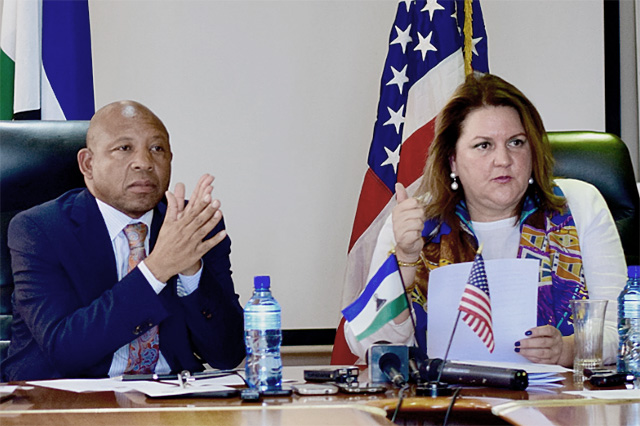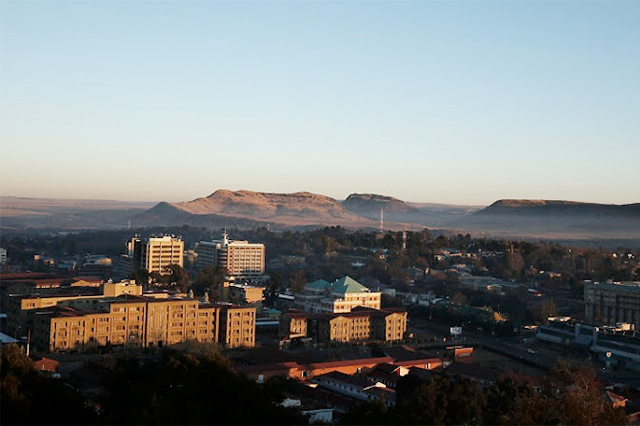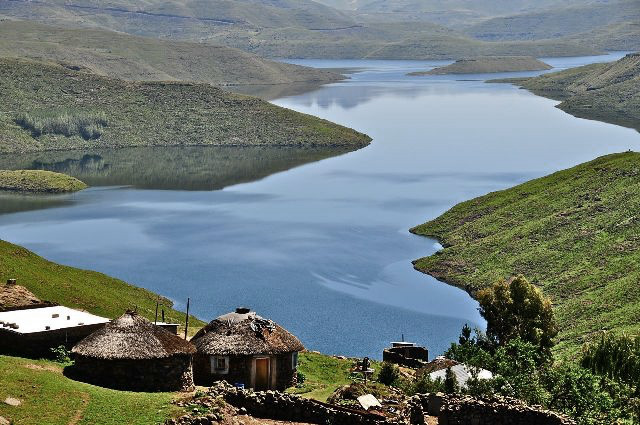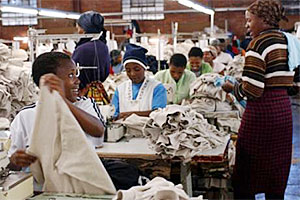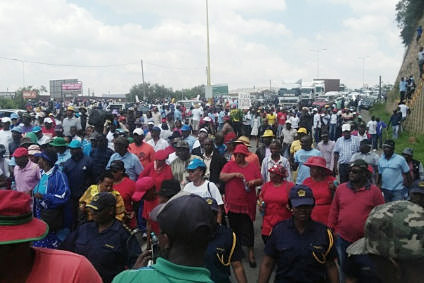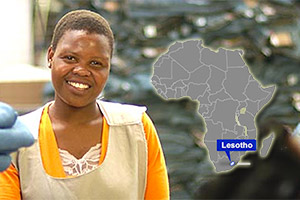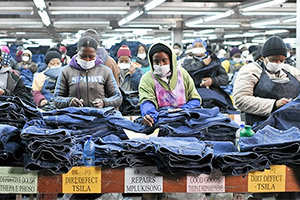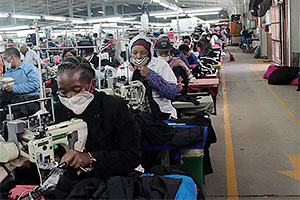Lesotho's economy curbed by textile exodus
Growth in Lesotho's economy slowed towards the end of 2004, as Asian clothing factories left the poverty-stricken mountain kingdom, after global textile quota changes, Finance Minister Timothy Thahane said yesterday.
In a budget speech to parliament, Thahane said gross domestic product (GDP) expanded by about 3,4% in 2004, with a significant down-turn in the last six months of the year as some Chinese and Taiwanese-owned factories closed.
He gave no comparative figures or estimate for 2005, but in the middle of last year, he predicted the economy would expand by 3,8% in 2004.
"Dark clouds are beginning to gather following the end of the multi-fibre agreement," Thahane said.
Textiles have been an economy mainstay in Lesotho, which is bordered on all sides by the continent's economic powerhouse, South Africa.
Thahane was referring to the expiry on January 1 of a global textile quota deal, which has exposed Lesotho to competition from bigger Asian producers with cheap labour costs, like China.
Lesotho also benefits from preferential access to US markets under the African Growth and Opportunity Act (Agoa), but there are concerns over whether this will be extended.
Countries like Lesotho, that use third-country fabrics for their exports, will only be able to benefit from Agoa until 2007.
To encourage Asian firms to stay, Lesotho would accelerate VAT refund procedures and reform its land laws, Thahane said. He gave no further details.
Aid workers say up to 6 000 people have already lost their jobs in the exodus – a worrying development in a country already battling high unemployment and an HIV infection rate of about 30%.
Thahane said growth in Lesotho's retail, banking, telecommunications and public sectors had slowed to 3,9% in 2004, down from 4,4% in 2003.
"This is another indication of economic slowdown," he said.
Customs receipts were expected to fall, although mining revenue would double from a small base. A major diamond-mine – part-owned by the government – opened in November and more are expected to follow, he said.
Thahane forecast a budget deficit of 249,5-million maloti in the fiscal year starting on April 1, which he said would amount to 2,6% of GDP. He gave no comparisons. The maloti is pegged to South Africa's rand on a one-to-one basis.
Spending on education, health and social welfare projects would be increased.
Thahane said Lesotho would ask for cancellation of its multilateral debt at International Monetary Fund and World Bank meetings later in the year. He gave no figures for the outstanding amount.
"Lesotho has never defaulted on its debt. Unfortunately, when debt (relief) initiatives were designed, low-income countries such as Lesotho, which have managed their finances well were overlooked," he said. – Reuters.



